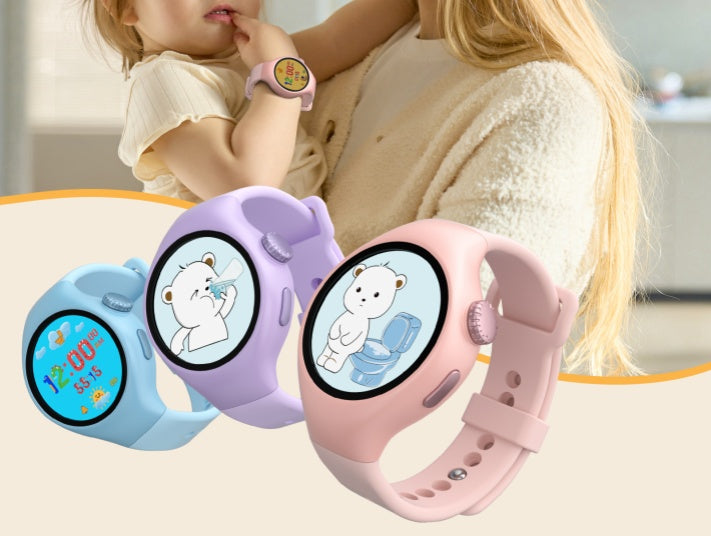

How to Handle Your Child's Big Feelings
Hello NehNehBaby Community!
Every parent knows that children can have some big feelings. These emotional outbursts can be overwhelming—for both you and your child. Understanding how to help your child navigate these big feelings is key to fostering their emotional growth and well-being. In this week's blog, we’ll share some practical strategies to help you manage and support your child through their most intense emotions.
1. Understand the Nature of “Big Feelings”
Big Feelings are Normal:
Children, especially toddlers and preschoolers, often experience emotions with great intensity. They are still developing the skills to process and communicate their feelings, so it's common for them to express anger, frustration, sadness, or excitement in dramatic ways.
Developmental Stage:
At this age, children are learning to understand their emotions, and they rely on you to guide them. Remember, big feelings are part of growing up, and it’s okay for them to express these emotions, even if it’s sometimes inconvenient or challenging.
2. Stay Calm and Composed
Be the Model:
Your reaction to your child’s big feelings sets the tone. If you stay calm, it signals to your child that their emotions are manageable. Take a deep breath, speak softly, and try to maintain a relaxed posture. This helps de-escalate the situation and reassures your child that they’re not in trouble for feeling upset.
3. Acknowledge and Validate Their Emotions
Let Them Know It’s Okay:
Use simple phrases like, “I see you’re really upset,” or “It’s okay to feel angry/sad.” Validating their emotions helps them feel heard and understood. It also teaches them that it’s okay to feel big emotions.
Avoid Minimizing Feelings:
Try not to dismiss or downplay your child’s feelings, even if they seem minor to you. For example, saying “It’s not a big deal” can make your child feel unheard. Instead, show empathy and say, “I understand why that made you upset.”
4. Encourage Healthy Expression
Use Words to Express Emotions:
Encourage your child to name their feelings: “Are you feeling frustrated because you can’t find your toy?” This helps them develop emotional literacy, which is crucial for understanding and managing their emotions.
Offer Safe Outlets:
Give your child tools to express their emotions in healthy ways. This could be drawing how they feel, using playdough to release tension, or taking deep “belly breaths” to calm down. Activities like these can help them release built-up energy and frustration in a constructive manner.
5. Set Boundaries with Compassion
Teach What’s Acceptable:
While it’s okay for your child to feel angry or sad, it’s also important to teach them how to express these feelings respectfully. For example, it’s okay to be mad, but it’s not okay to hit or yell at others. Set clear, gentle boundaries and explain the reasons behind them.
Use “Time-Ins” Instead of “Time-Outs”:
If your child is having a particularly rough time, consider a “time-in” rather than a “time-out.” A “time-in” involves sitting quietly together and talking about what happened. It gives your child the opportunity to calm down with your support, rather than feeling isolated.
6. Offer Comfort and Reassurance
Physical Affection:
Sometimes, a hug or a gentle touch can work wonders. Physical closeness can be very comforting for children when they are experiencing big emotions.
Reassure Them:
Remind your child that you’re there for them, even when they’re upset. Hearing “I’m here with you” or “We’ll figure this out together” can make a big difference in how they process their feelings.
7. Teach Coping Strategies
Deep Breathing:
Teach your child simple deep breathing techniques. Count to three as they inhale, and to three as they exhale. This helps them regulate their emotions and manage stress more effectively.
Create a Calm-Down Space:
Set up a cozy “calm-down corner” in your home where your child can go to relax and reset. Fill it with soft pillows, stuffed animals, and calming toys like sensory bottles. Having a designated place to unwind can help children regain control when emotions feel overwhelming.
Conclusion
Handling your child’s big feelings is an important part of parenting. By staying calm, acknowledging their emotions, and offering support and guidance, you can help your child learn to manage their feelings in a healthy way. Remember, it’s okay for your child to feel strongly—they’re learning how to navigate the complex world of emotions.
Thank you for being part of the NehNehBaby community!
Warm regards,





